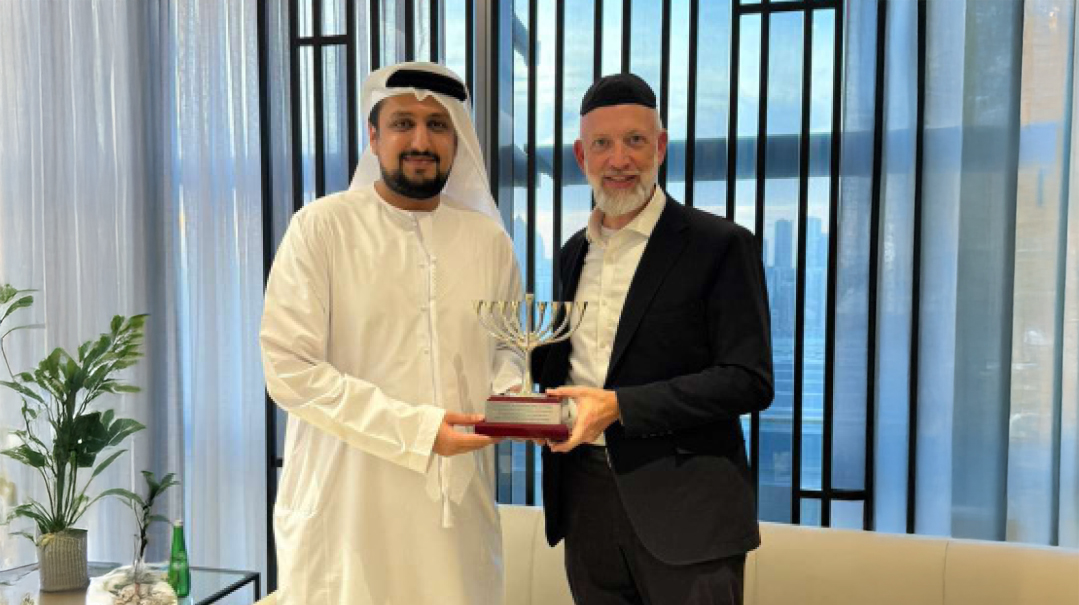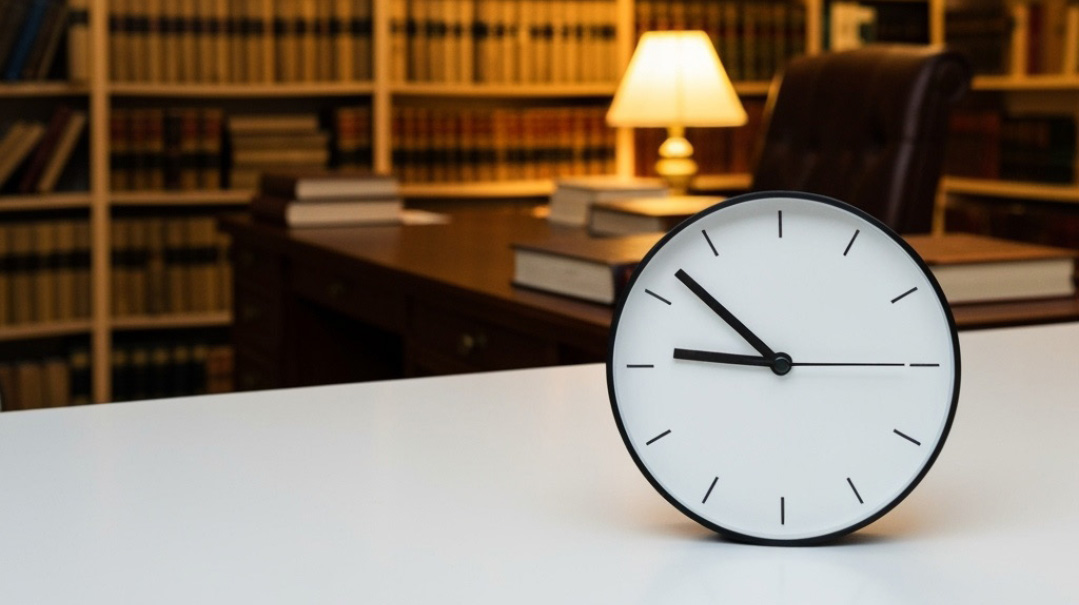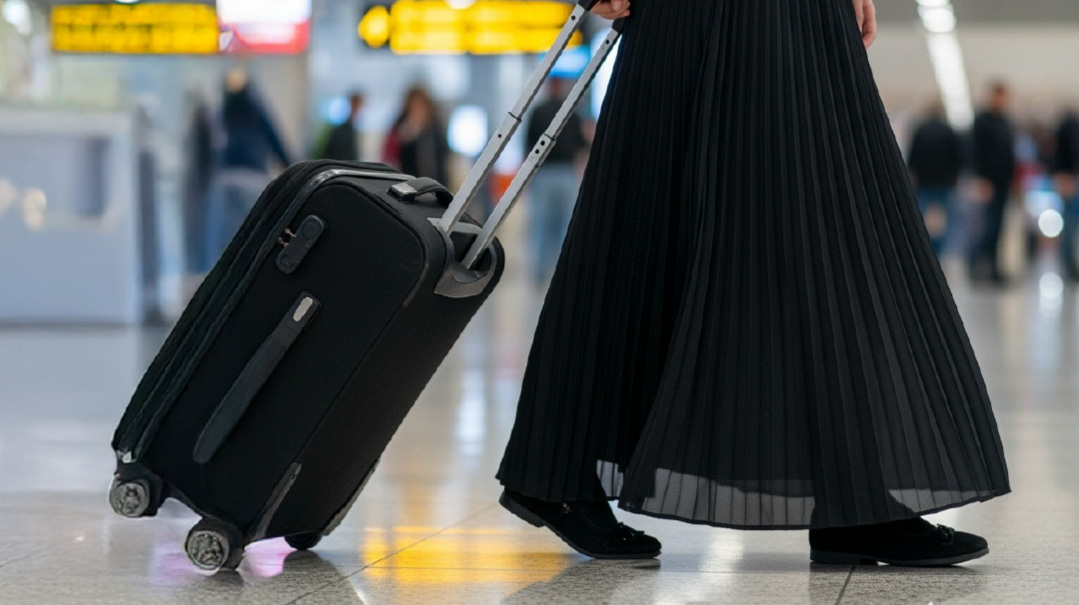A Little Judge with a Lot of Power

Are our girls as well armed as Judge Ruchie Freier?
S
he stood at the bimah of Young Israel of Greater Cleveland and addressed the audience of 400 women. “Building Our Future” was the name of the event and the speaker was just the right medium to deliver the message. It takes someone big to bring out the crowds in Cleveland on a dark and snowy Sunday night in December. But the little judge did just that, and brought representatives from all ends of the Orthodox spectrum together.
Judge Freier was energetic, spunky, and funny – and driven, devoted, and fearless. She shared with us her story of how she became The Honorable Judge Ruchie Freier, the first chassidic woman to be elected to a public office in the United States and the first chassidic female judge. It all started with three kids in tow at her husband’s graduation from college, when she answered her inner calling and decided to earn a degree. And so Judge Freier’s journey began from chassidic housewife to student at Touro College to lawyer, community activist, and ultimately New York criminal judge. When naysayers told her a chassidic woman could never win an election in Boro Park, she said, “If G-d wants me to win, I’m going to win.”
It dawned on me as I beheld this tiny yet tenacious lady that she serves as a new kind of role model for those bnos Yisrael who have entered the modern-day workforce. With her mesorah under her belt, she is emboldened, not afraid. It is her protective armor when she leaves her challah baking at home and enters criminal court, transforming herself into what the New York Times calls “the Hasidic superwoman of night court.”
Every day, she notes the words “In G-d We Trust” emblazoned above her in the courtroom. This is her mantra, and this is at the core of her being. She is steadfast in her emunah and her dedication to Hashem.
JUDGE RUCHIE FREIER EMBODIES the message that today’s women — working and otherwise — need to hear: the necessity to stay strong and committed to one’s standards as a Jewish woman when interacting with the outside world. That she must know, deep within her being, it is her Yiddishkeit that provides the clarity, direction, and stability needed when venturing into secular professions. As Judge Freier recently stated in an interview on NBC’s Today Show, “Religion gives me the strength and background that I need.”
In fact, before becoming a judge, Judge Freier worked in various law offices in New York where she discovered that when she kept to her standards, coworkers respected her for it — and expected her to maintain them.
In today’s shidduchim, girls include their post-seminary education and employment on their résumés. More and more girls are going into the secular workforce, into professions that “pay better than teaching,” in order to support their husbands in kollel and/or to prepare for the inevitable future for most Orthodox families, which necessitates a dual income. Most certainly, girls should choose professions that enable family to come first and workplace environments that are the least threatening to their beliefs. Yet the fact that some will be going out there is the reality on the ground. Are they armed like Judge Freier?
Do they not only have unwavering hashkafos, but a strong sense of self and purpose? A relationship with Hashem? Confidence to withstand challenges to their beliefs? Pride in being an ambassador of Torah Judaism? A keen awareness of their potential to bring about kiddush Hashem?
Throughout her speech, Judge Freier shared essential messages she learned from her teachers at Bais Yaakov of Boro Park, quotes she would mentally reference when faced with challenges to her success as well as exposure to foreign environments. With each example she mentioned, I wondered how many of today’s graduates metaphorically return to their Bais Yaakovs, citing their schooling as what prepared them for real life, both personally and professionally.
What messages are our schools providing graduates who are leaving the sheltered environment of Bais Yaakov? Are we adequately preparing them for the road ahead? How many of our schools’ mission statements include language about providing skills necessary to function in today’s society and preparing students to live as Torah Jews while being involved in the secular world, in whatever capacity? Are we being real enough?
JUDGE FREIER’S PRESENTATION was refreshing not only in its affirmation of the power of a strong education, but also in its embrace of unconventional pathways to workplace fulfillment.
Our graduates typically follow well-paved trajectories, entering fields that are not only socially and religiously acceptable, but family-friendly as well. While these factors are essential, it is also important that, within the framework of acceptable professions, our girls are encouraged to discover their individual strengths. To be sure, religiosity and family must always remain their primary commitments; however, our girls should also be honest with themselves about their personal abilities and interests when selecting a profession.
In the high school years, girls should be developing a self-awareness so that when they discover their calling — if the working world calls to them — it is a natural extension of themselves. What a pity for a girl to go into a field seemingly best for her shidduch résumé, but not best for herself.
Rabbi Yitzchok Feigenbaum, in a now legendary article penned for Klal Perspectives entitled “Been There, Done That: Why Being Frum Is So Boring,” presses Bais Yaakovs to inspire girls to be contributing members of Klal Yisrael through adopting an honest chinuch approach that encourages individualism, validates struggles, embraces failure, and encourages questions. He writes:
Sarah Schenirer was quoted as saying that the reason she started Bais Yaakov was: “To make frum girls from frum homes proud and excited about their Yiddishkeit.” This must be the goal of our Yeshivos and Bais Yaakovs. We cannot take for granted that just because our children speak and dress Jewishly… that somehow they will magically find Yiddishkeit more pulsating, exciting and satisfying than the outside world (which they all know about). Mechanchim (educators) now understand that the key is to give our talmidim and talmidos (students) a sense of accomplishment, uniqueness and individual self-worth as a contributing member to Klal Yisroel in their own unique way.
When our young women love Torah, harbor pride in their Yiddishkeit, and feel connected to Hashem, their community, and themselves, they can then contribute from a place of strength and certitude.
Maintaining standards is an imperative for every religious Jew, whether or not he or she works in the secular world. As members of general society, we are persistently called upon to be critical in our exposure to the outside world, evaluating what to keep in and what to keep out, determining what is consistent with our Torah values and what is not.
Let us approach these challenges from a place of strength instead of fear, with a sense of pride and conviction in our beliefs.
(Originally featured in Mishpacha, Issue 696. Alexandra Fleksher is an educator, a published writer on Jewish contemporary issues, and an active member of her Jewish community in Cleveland, Ohio.
Oops! We could not locate your form.







